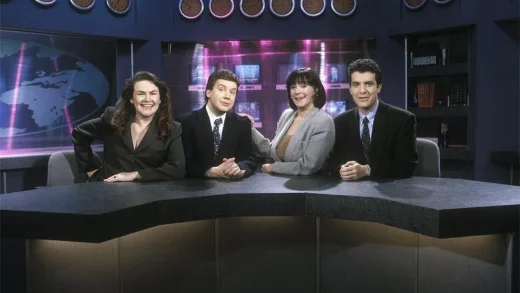:format(webp)/https://www.thestar.com/content/dam/thestar/entertainment/books/2023/04/06/charles-forans-memoir-just-once-no-more-on-mortality-family-and-what-it-means-to-be-alive/charles_foran.jpg)
It has been said that a man does not truly become an adult until his father dies. This may be true for men whose fathers shuffle off this mortal coil when their sons are relatively young — before, say, their mid-thirties. But for men whose fathers die when the sons are in the more advanced stages of middle age —their mid-forties to fifties, say — the passage to adulthood has likely already been navigated. What a father’s death heralds in an older son are the clanging intimations of the son’s own mortality.
This is certainly the case for Charles Foran, award-winning biographer of Mordecai Richler and executive director of the Writers’ Trust of Canada, whose father Dave died at age 85 after a protracted illness. It did not help that Foran, himself in his late fifties, was soon to be diagnosed with heart problems that would require a series of angioplasties to rectify. If Foran, who admits he has never felt comfortable in his own body, was forced to deal with its betrayal, how much more acute must the experience have been after so recently encountering the inevitability of even the best medicine’s ultimate failure to preserve his father’s life?
Foran’s latest book, the slim memoir “Just Once, No More,” is a meditation on issues of mortality, family, and what it means to be alive in the world. It begins, appropriately enough, with a death: Foran dramatizes a scene in his father’s twenties when, alone in the bush, he encounters a bear and has to shoot it with the 44-40 rifle he is carrying. It’s a quintessential CanLit opener: man against inimical, threatening nature, an encounter that can end in no other way but with violence. It also sets up what is to come: a series of lyrical musings about various incidents in the lives of Foran, his father, his children, and his ancestors that cumulatively comprise an emotional cartography of the author’s developing understanding of how to exist in a body among other bodies, both human and animal.
“Form mattered a great deal to me as a writer,” Foran states at one point. “Form was, I eventually came to realize, my body, as much as my mind, on the page.” This admission dovetails with his own awkwardness in his body: the form of his memoir is free-flowing and meandering, moving in a jerky, not-quite-unnatural way through past and present, imagined encounters and the vagaries of memory. It is split into roughly two halves: the first before Dave’s death; the second after. Within those two parts, the narrative — such as it is — moves through short sections in the first person and in the second, these latter alternating between the father’s imagined perspective and the son’s own. It’s a highly writerly approach that emphasizes the existential and ontological mysteries with which Foran grapples in the text, but the lack of a consistent through line does prove frustrating in places.
The overall arc of the narrative is focused on Foran’s relationship to his father and the fallout from the latter’s death. Unless, of course, it’s not. In the closing pages, Foran addresses his late father, writing, “never has this book been only, or even principally, about you.” Rather, he suggests, the writing of the book was “an attempt to reconcile your mortality with the unsettling of my being.” That unsettlement is all over the resulting text, captured in both form and content.
That content addresses not just the often prickly relationship between fathers and sons, but the nature and flight paths of urban pigeons, the Irish potato famine of the mid 19th century, the poetry of Rilke, and the philosophy of Lau Tzu. One chapter in particular begins with a rumination about ruins — “Temples, churches, burial mounds and cemeteries” — before eliding into a discussion of Saint Augustine, which then bleeds into Foran’s failed attempts to read Virgil’s “Aeneid,” Bob Dylan’s late ’70s song “You’ve Gotta Serve Somebody,” Balinese gamelan music, and the Large Hadron Collider. Following these shifts, like the flow and curvature of a river, requires a large investment by the reader. The payoff is being in the presence of a supple, inquisitive mind as it wends its own rambling way through the vicissitudes of human existence.
JOIN THE CONVERSATION
does not endorse these opinions.
:format(webp)/https://www.thestar.com/content/dam/thestar/entertainment/books/2023/04/06/charles-forans-memoir-just-once-no-more-on-mortality-family-and-what-it-means-to-be-alive/just_once_no_more.jpg)


